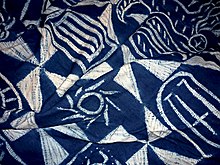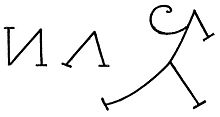Nsibiri: The Pre-colonial Writing Of The South Eastern People - Culture (2) - Nairaland
Nairaland Forum / Nairaland / General / Culture / Nsibiri: The Pre-colonial Writing Of The South Eastern People (53072 Views)
Did West Africans Develop Cast Iron In Pre-colonial Times? / Interesting Images From Precolonial And Early Colonial Africa / Traditional Eastern Ijaw Attire In Pictures (2) (3) (4)
(1) (2) (3) (4) (5) (Reply) (Go Down)
| Re: Nsibiri: The Pre-colonial Writing Of The South Eastern People by ChinenyeN(m): 8:21pm On Jul 11, 2012 |
One_Naira: @ CrayolaDon't Anioma have their own script? |
| Re: Nsibiri: The Pre-colonial Writing Of The South Eastern People by OneNaira6: 8:31pm On Jul 11, 2012 |
ChinenyeN: Why do I get a feeling you are trying to be mischievous? Before I answer, just answer me one thing, why do you ask? |
| Re: Nsibiri: The Pre-colonial Writing Of The South Eastern People by ChinenyeN(m): 8:41pm On Jul 11, 2012 |
One_Naira: Why do I get a feeling you are trying to be mischievous?Because I read somewhere that they have their own script. |
| Re: Nsibiri: The Pre-colonial Writing Of The South Eastern People by OneNaira6: 8:55pm On Jul 11, 2012 |
ChinenyeN: Well that is news to me. You do realize Anioma composes different communities entangled into one name meaning if there is ever a script, it would probably be for one community as oppose to all anioma communities since the term "anioma" is a recently new term and a relatively new community. I have never heard of any Anioma community that had a script so I don't think there was an Anioma script but don't quote me on that because I'm not sure. |
| Re: Nsibiri: The Pre-colonial Writing Of The South Eastern People by OneNaira6: 9:04pm On Jul 11, 2012 |
pleep: well, 'eastern' would include the north east also. hmm I did not know that. For long time I've Identified SE as just the 5 states, If I needed to include Akwa-ibom, etc, I move call it Eastern. Thanks dude, I learned something new |
| Re: Nsibiri: The Pre-colonial Writing Of The South Eastern People by ChinenyeN(m): 9:05pm On Jul 11, 2012 |
One_Naira: Well that is news to me. You do realize Anioma composes different communities entangled into one name meaning if there is ever a script, it would probably be for one community as oppose to all anioma communities since the term "anioma" is a recently new term and a relatively new community. I have never heard of any Anioma community that had a script so I don't think there was an Anioma script but don't quote me on that because I'm not sure.Oh okay. I see. |
| Re: Nsibiri: The Pre-colonial Writing Of The South Eastern People by NRIPRIEST(m): 1:31am On Jul 12, 2012 |
ChinenyeN: Aha! Where did you read that and provide the link,too. I see your motive from afar,olibe osiba ! |
| Re: Nsibiri: The Pre-colonial Writing Of The South Eastern People by Crayola1: 6:07pm On Jul 14, 2012 |
| Re: Nsibiri: The Pre-colonial Writing Of The South Eastern People by Crayola1: 2:41am On Oct 11, 2012 |
[img]http://3.bp..com/-5xOkoL5q0AQ/UGUr7T9qnhI/AAAAAAAABBA/SkA5zsHqlrE/s1600/1.png[/img] [img]http://1.bp..com/-VLWkqRZU7uE/UGUqs75OfzI/AAAAAAAABA0/9mCOrw6YAro/s1600/4.png[/img] Updates  I also found a video with nsibidi subtitles, to show how it looks in action. But I'll have to convert it 1st to youtube format  |
| Re: Nsibiri: The Pre-colonial Writing Of The South Eastern People by kikuyu1(m): 7:32am On Oct 11, 2012 |
Crayola1:The symbology of the court case reminds me of Gicandi,albeit in a laymans way. The way the 2 scripts use lines to represent ideas and events isn't far apart. [img]http://4.bp..com/-bYR1sDIPJBU/UDx1-ODhmlI/AAAAAAAAAAs/7b3B8EGZm78/s320/image0001.jpg[/img] [img]http://3.bp..com/-__5IkypU8dg/UDx230rRqqI/AAAAAAAAAA0/hFgkdC4K2TE/s320/image0003.jpg[/img] It was the universal Kikuyu script but even by 1910 was remembered by few and taught by only a handful. translation of the script reveals normal day to day activities which makes clear it was common enough for daily usage and also suggests it was widely understood. However even by then 1910 ,it was dying out and few could decipher the signs.http://karanjazplace..com/2012/08/inside-kikuyu-complex.html |
| Re: Nsibiri: The Pre-colonial Writing Of The South Eastern People by WAXXSTAXX(m): 7:57am On Oct 17, 2012 |
IBIBIO CIVILIZATION OF MBOT ABASI a.k.a. AROCHUKWU. IN IBIBIO: MBOT = CREATION or PEOPLE. ABASI = GOD. Therefore, MBOT ABASI = God's Creation or the people of God. IN IGBO/ARO: ARO(according to my interpreter) = Creation or PEOPLE. CHUKWU = GOD. Therefore, AROCHUKWU = God's Creation or the people of God. That means after the Igbo/Aros captured the city from its original Ibibio owners, they simply translated MBOT ABASI into its equivalent, AROCHUKWU, in IGBO. The Ibibio word "Nyibi" which means turn in English, is the root of Nyibidi. Nyibidi means turning. The play was usually accompanied with drummings. The drum is called Ibit. The drum for the ruling Crown is called Ibit Itam. Itam means crown, hat, or headgear. Ekpe was indeed the governing deity and Ibit Itam was one of their major plays. Ukara means governance or government in Ibibio. Ukara cloth is worn by those in the government of Ekpe. The Ekpe and even Ekpo masquerade of old used to dance in a circular motion in order to induce a trance-like effect or feeling. Hence Nyibidi. Ibibio is the largest language of the Cross River and Akwa Ibom territories. Efik, Ejagham, Ekoi, Annang, Oron, Eket, Qua, Ibeno, Okobo, etc. are all variations of Ibibio. Same origins, but dialectical variations brought on by evolution and prolonged separation from the core group I would say. The Ibibio owned and controlled Arochukwu until they lost it in 1634 to the allied forces of the migrating Igbo and the Akpa. The Igbo slaves of the Ibibio rebelled and joined forces with the Akpa who were themselves of Ibibio origin. The Ibibios left both Arochukwu and their ancient Long Juju, but those who remained continued to run the oracles and influence the Igbo converts/practitioners of Ekpe. The Ibibios and Efiks taught Nsibidi to the Igbos through the Ekpe society. The chief language used in what you might call classical Ekpe was Ibibio. The Ibibios and Efiks knew Arochukwu as Ibom and Mbot Abasi. Mbot means creation. Abasi means God. Therefore, Mbot Abasi means the creation of God or, simply, the people of God. While in Arochukwu, the Ibibio leaders had a secret society called Ekpe. Ekpe means leopard or lion. The leadership operated (and still does)in an esoteric manner. Only members are privy to the innerworkings of the group. They developed an elaborate system of logograms through which their ideas, knowledge, and activities were recorded. Nyibidi which means turning (going in circles), evolved into Nsibidi. Nsibidi is Ibibio for what is at play or, what's playing? Nso = what. I(as in letter "e" = is. Bidi = play or playing. NSO-I-BIDI (NSIBIDI) or NSO-I-BIRI(NSIBIRI) means what's playing? What's at play? Therefore, Nsibidi means what is playing or, what's at play? Nsibidi was later adopted as the name for the writings associated with Ekpe society. It is true that the Europeans found most of the Nsibidi script among the Ekoi, but it is really of Ibibio origin. When Aro and their allies conquered the Ibibio in 1634, they took over the oracle but retained its priests, with Loesin as the chief priest. It was he who later initiated Aro indigenes into the cult as priests. IBINI UKPABI is the IGBO corruption of IBIT UKPABI. Some say the Igbos used the word IBINI as homage to the slave-raiding Oba of Benin who caused their migration to Arochukwu. After the IBIBIO lost AROCHUKWU, the Igbos renamed the Ibibio deity IBI ITAM (Drum of the Crown). They called it IBIT UKPABI. IBIT is IBIBIO for DRUM. UKPABI is an IGBO name. The corrupted version, IBINI UKPABI, is what they use these days. Since Arochukwu(Mbot Abasi in Ibibio or God's creation/people in English) is the spititual center of the Igbo race, you can say that their 'holyland' is actually of Ibibio origin. I'll call it the IBIBIO CIVILIZATION OF AROCHUKWU. The Ibibio created it and that explains why the Aro deities have mostly Ibibio names. The Igbos could not fully adapt Nsibidi because translation from Ibibio into Igbo had too many constraints. Original meanings of Ekpe society's Nsibidi often got lost in translation. "There was no war between Aros and Ibibio -what happened was what one would accurately describe as a coup. The Aros who were assistants (slave by Europeans) at the Ibritam Shrine organized a coup with the help of Ekoi, Akunakuna, and Igbos and seized the shrine from their Ibibio masters. Talbot** put the date at 1300 -1400 based on the geneaology and calculation of the ages of relatives of informant who claims their forebears were in charge of this shrine -we dispute this because the informant forebears couldn't have been incharge since religious affairs in Ibibio land was entrusted to the group known as Annang today ,and this informant came from a different group. However, Talbot also based his date from Aro informant. We still think that the date was much earlier. However the consensus is that the Aros were in possession of the shrine before trade with the Portuguese and later Slave trade with Efik and later the Ijaws-Bonny and kalabari when Ibibios prohibited transportation of people across their territory." “Obot Okon Ita or Obinkita(an Igbo corruption of the name) was the capital of the Ibibio kingdom of Obong Okon Ita and Ibom(nation in Ibibio) before its conquest by Igbo and Akpa invaders in 1690–1720. This town is significant in Aro History because Obinkita became the center where defeated Ibibio warriors were judged. This is why all Aro villages assemble at Obinkita during the Ikeji festival. Obinkita is now one of the 19 villages of Arochukwu.” IKPE means JUDGMENT in Ibibio. “Agwu Inobia or Eze Agwu the man that was the founding father of igbo Arochukwu: Agwu Inobia or Eze Agwu was one of the founding fathers of the city of Arochukwu, the third largest city in Abia State in southeastern Nigeria. He was the descendant of Nna Uru (a immigrant from the Igbo heartland to the Obong Okon Ita area) and king of the Eze Agwu clan centered in their capital the Amanagwu city-state. As new settlers, the Eze Agwu clan was resisted by the regional power Obong Okon Ita which led to the start of the Aro-Ibibio Wars. The war initially became a stalemate. Both sides arranged a marriage between the king of Obong Okon Ita and a women from the Eze Agwu clan in an attempt for a peaceful coexistence. The marriage eventually failed to bring peace but eventually played a decisive role in the war. King Agwu Inobia invited Priest Nnachi from the Edda group near Afikpo to help him break the stalemate and win the war. When he arrived, Nnachi and Eze Agwu allied with prince Kakpokpo Okon of the Ibibio kingdom of Obong Okon Ita. Kakpokpo Okon was the son of the marriage between the Igbo women of the King of Obong Okon Ita. The Eze Agwu/Nnachi faction decided to help Kakpokpo attempt to overthrow his brother king Akpan Okon and the coup was heavily resisted. Nnachi called on an Eastern Cross river group known as the Akpa for help. The Akpa are said to have possessed guns and are credited for introducing the weapon to the region. Princes Osim and Akuma Nnubi led Akpa soldiers to help fight against the Ibibios. The alliance between Eze Agwu, Nnachi, Kakpokpo Okon, and the Akpa eventually defeated the Obong Okon Ita forces (1690–1720) under the leadership of Osim Nnubi. As a result of the Aro-Ibibio Wars, the alliance formed the Arochukwu kingdom. Akuma Nnubi was appointed king of Arochukwu in the place of his brother Osim Nnubi who died during the end of the war. Prince Kakpokpo Okon died and the Ulu Okon dynasty was assimilated into the Eze Agwu lineage. The Amanagwu was incorporated as the first of the 19 city-states of Arochukwu and Eze Agwu became one of the three lineages of Arochukwu.” "The other major slave-exporting state was a loose confederation under the leadership of the Aro, an Igbo clan of mixed Igbo and Ibibio origins, whose home was on the escarpment between the central Igbo districts and the Cross River. Beginning in the late seventeenth century, the Aro built a complex network of alliances and treaties with many of the Igbo clans. They served as arbiters in villages throughout Igboland, and their famous oracle at Arochukwu, located in a thickly wooded gorge, was widely regarded as a court of appeal for many kinds of disputes. By custom the Aro were sacrosanct, allowing them to travel anywhere with their goods without fear of attack. Alliances with certain Igbo clans who acted as mercenaries for the Aro guaranteed their safety. As oracle priests, they also received slaves in payment of fines or dedicated to the gods by their masters as scapegoats for their own transgressions. These slaves thereby became the property of the Aro priests, who were at liberty to sell them." http://countrystudies.us/nigeria/7.htm ORIGINS OF THE NIGER DELTA FOLKS: IGBO, BINI, EFIK, IBIBIO, ORON, IKOM, IJAW, OGONI, ETC. http://books.google.com/books?id=Zm7sWUbDWakC&pg=PA21&lpg=PA21&dq=ibibio+related+to+ethiopia&source=bl&ots=rUzhaRL6bX&sig=hdDq6hJv5MWCRDMJEmcp9C5ejI4&hl=en&sa=X&ei=NvQVUezYD8H3igKd9YGoBQ&ved=0CGMQ6AEwCDgK#v=onepage&q=ibibio%20related%20to%20ethiopia&f=false MEET AN ENDANGERED LANGUAGE: THE MEDEFAIDRIN SPIRIT LANGUAGE OF AKWA IBOM STATE OF NIGERIA Medefaidrin is a religious language spoken by a Christian group known as the Oberi Okaime (freely given) Christian Church in the Ibiono and Itu Local Government Areas of Akwa Ibom State in the oil rich Niger delta region of Nigeria. The language, which was created in the late 1920s, is now highly endangered but revitalisation efforts are ongoing to revive the language by the current generation of Oberi Okaime members. The inventors and speakers of the Medefaidrin language are first and foremost Ibibio language speakers which means that Ibibio is their mother tongue. However, the Medefaidrin language, claimed to be spiritually revealed, is distinctly different from the Ibibio language. Members do not acquire the language but learn it as a second language in the context of religious activities. Other Ibibio language speakers do not understand this language without having to learn it. Very significantly, the language has a unique script, quite different from the English language orthography, which was the other language used in religious practices at the time. Interestingly, the Ibibio language, the mother tongue of the Oberi Okaime members had no writing system at the time the Oberi Okaime leaders developed the Medefaidrin script. In addition, the language has a counting system which is worth examining. In order to preserve the Medefaidrin language of the Oberi Okaime community, the Department of Linguistics & Nigerian Languages of the University of Uyo, Nigeria is promoting and supporting the language revitalisation efforts of Medefaidrin through language documentation projects including scanning old handwritten texts, development of a multilingual e-dictionary and research projects by staff and graduate students of the Department. Work is in progress on what could have been the genesis of the Medefaidrin language through the examination of the structure of the language, punctuation practice and media layout (Gibbon and Urua 2009, 2010). From a historical perspective, Professor Monday Abasiattai (Department of History and International Studies, University of Uyo, Nigeria), has been engaged with work on the Oberi Okaime group for over twenty years. Some of the early studies on the Oberi Okaime group include Adams (1947) and Hau (1961). Otherwise not much (documentary) linguistic work has been done on this language. Scholars actively engaged in the Medefaidrin project include Professor Monday Abasiattai, Professor Dr. Dafydd Gibbon, Mr. Moses Ekpenyong, Mr. Anthony Etim and Professor Eno-Abasi Urua. We hope that this platform will interest more people. http://www.hrelp.org/events/elw2011/medefaidrin.pdf http://www.lrec-conf.org/proceedings/lrec2010/pdf/342_Paper.pdf Arochukwu. http://dir.groups.yahoo.com/group/WorldIgboCongress/message/15772 https://www.nairaland.com/675773/great-leaders-nigerias-history-before/2 PROFESSOR PHILIP EMEAGWALI http://www.emeagwali.com/photos/yoruba/photo-essay-on-yoruba.html |
| Re: Nsibiri: The Pre-colonial Writing Of The South Eastern People by ifyalways(f): 9:21am On Oct 17, 2012 |
^my dad, an. Aro man agrees with your views. |
| Re: Nsibiri: The Pre-colonial Writing Of The South Eastern People by Abagworo(m): 9:44am On Oct 17, 2012 |
ifyalways: ^my dad, an. Aro man agrees with your views. No. He can't agree with all. Hope you read the part where he wrote that Igbos were running away from raids by the Oba of Benin. That's pure fallacy. |
| Re: Nsibiri: The Pre-colonial Writing Of The South Eastern People by ifyalways(f): 11:41pm On Oct 17, 2012 |
Thank you my brother. I got carried away and glossed through the latter part of his write up. What I meant was that my late dad agreed and told us that Nsibidi/Nsibiri originated from Ibibio land. |
| Re: Nsibiri: The Pre-colonial Writing Of The South Eastern People by odumchi: 12:06am On Oct 18, 2012 |
Some say the Igbos used the word IBINI as homage to the slave-raiding Oba of Benin who caused their migration to Arochukwu. And the author miraculously finds a way to squeeze Benin into this. Sigh. 1 Like |
| Re: Nsibiri: The Pre-colonial Writing Of The South Eastern People by Crayola1: 1:15am On Nov 18, 2012 |
 Igbo writing nsibidi: Nni nọ ngaa So tiny. I'm posting on my iPad   so sorry for some weird sized pics. so sorry for some weird sized pics. |
| Re: Nsibiri: The Pre-colonial Writing Of The South Eastern People by Malawian(m): 2:46am On Nov 18, 2012 |
msheew. igbos running away from who? since when do we run? benin made a mess of even trying to subdue small ika groups. everybody don see igbo finish because of civil war abi? all man dey invent all manner of history for us now. smh ihe agha mere igbo, |
| Re: Nsibiri: The Pre-colonial Writing Of The South Eastern People by WAXXSTAXX(m): 5:07am On Nov 18, 2012 |
|
| Re: Nsibiri: The Pre-colonial Writing Of The South Eastern People by adaide1: 2:58pm On Nov 21, 2012 |
@crayola Why dont we learn it as it is or just do little reduction. the akagu atime is quite different from the nsibidi, atime more complicated and other times a bit similar. Take No 1 on differences, why not reduce the number of crosses to two instead of 4, rather it was altered entirely making the symbols look different no 2:look at number 4, why not use it as it is or connect the X marks rather it was taken out of shape. I appereciate the effort but the akagu is looking like another type of written different from the nisbidi. Though nsibidi can be modified not changed, the basic structure can be made to look thesame. So that by mere looking at the two(nibidi/akagu)one can tell they are the same symbol. in summary, if one can spend time learning akagu why not also learn the other or better still create something that look thesame and simpler. Akagu is not doing that. My tots sha! kudos. |
| Re: Nsibiri: The Pre-colonial Writing Of The South Eastern People by Crayola1: 5:35pm On Nov 21, 2012 |
Thanks, but I'm not the person who came up with Akagu  But yeah I agree that some of the script looks a bit time consuming, but maybe the guy behind it will work out the problems as time goes on  |
| Re: Nsibiri: The Pre-colonial Writing Of The South Eastern People by Crayola1: 7:15am On Nov 29, 2012 |
| Re: Nsibiri: The Pre-colonial Writing Of The South Eastern People by Roseart: 3:06am On Feb 09, 2013 |
Train:Train 'Ugbo' [vessel] + 'Usoro' [order] [img]http://4.bp..com/-QkyenuNmRTs/UQf1jrwtBnI/AAAAAAAABIQ/LGg047-o1HI/s640/ugbusoro.jpg[/img] Igbo speaking map [Alaigbo] [img]http://2.bp..com/-4QhSrH1CWJ4/UQfrkiE684I/AAAAAAAABIA/O_u20Q6ypgE/s640/alaigbo.jpg[/img] Naira [img]http://4.bp..com/-u3Tm9aOTZs8/UOsJlF2a4qI/AAAAAAAABFU/cLVtH5hsYkU/s640/N500.jpg[/img] |
| Re: Nsibiri: The Pre-colonial Writing Of The South Eastern People by Roseart: 3:09am On Feb 09, 2013 |
Igbo Dialect Map 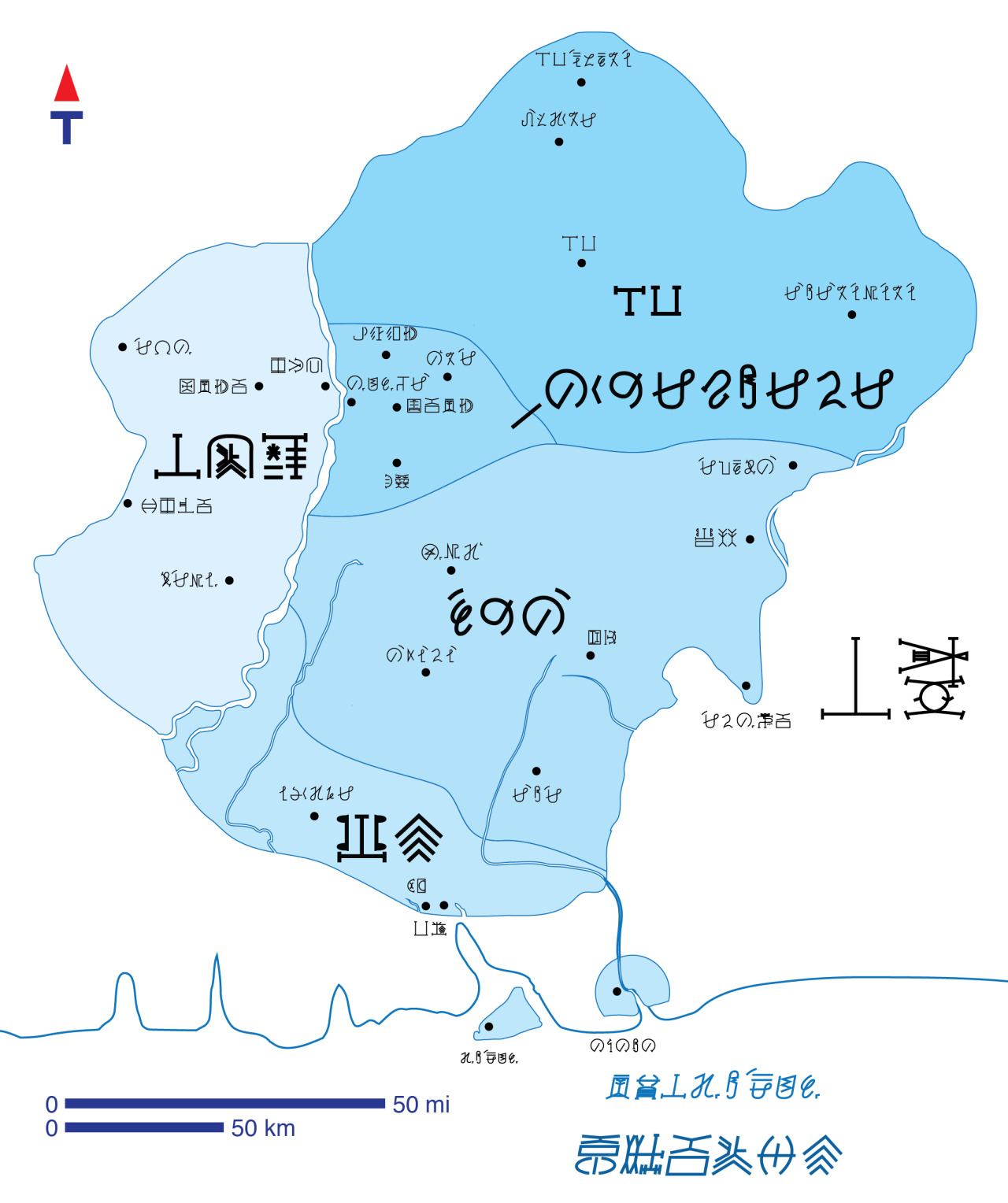 Life of Pi Movie Poster in Nsibiri  Swamp  Car  Sound  |
| Re: Nsibiri: The Pre-colonial Writing Of The South Eastern People by Roseart: 3:12am On Feb 09, 2013 |
Mist 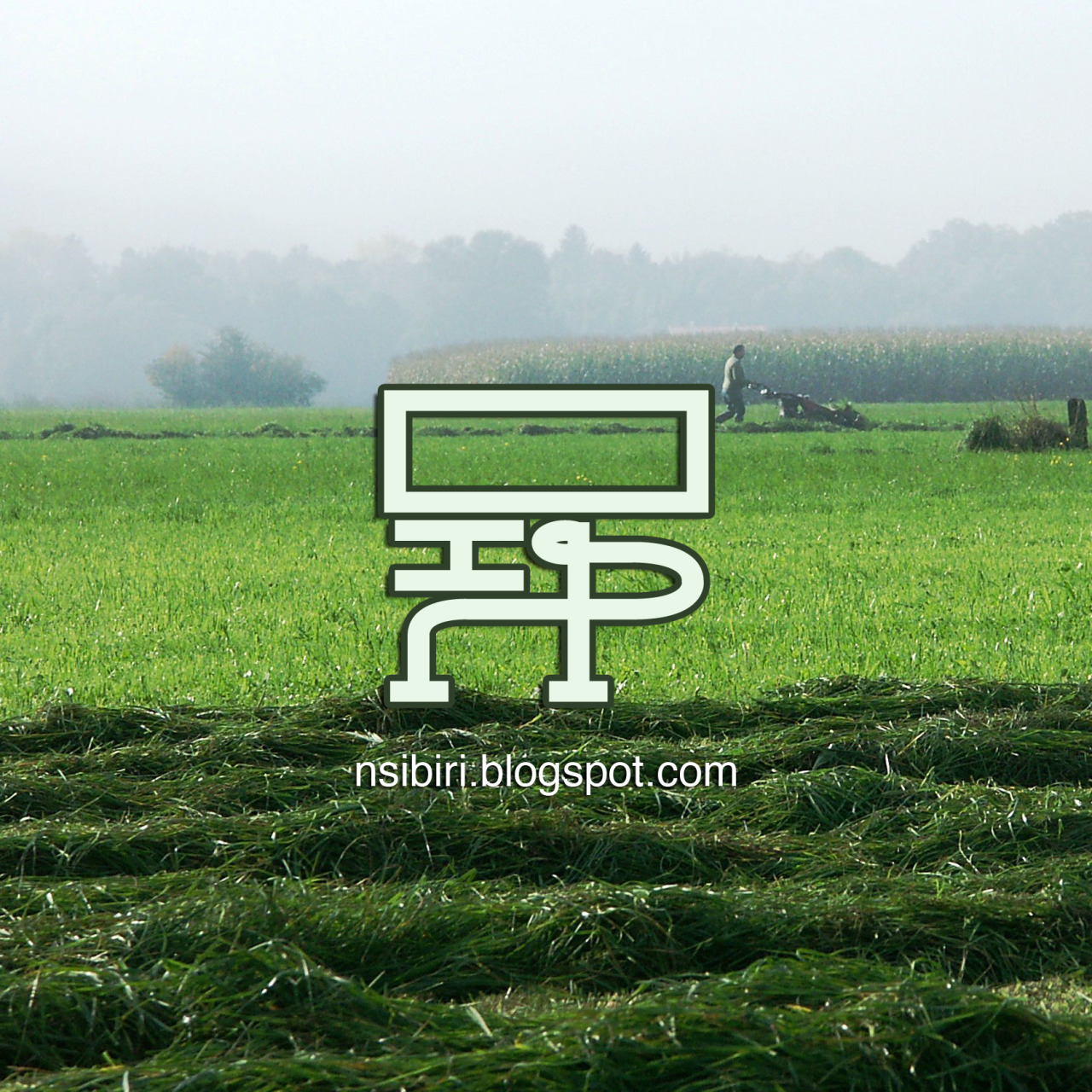 Island  Cable Car/Trolley/Tram  Parrot 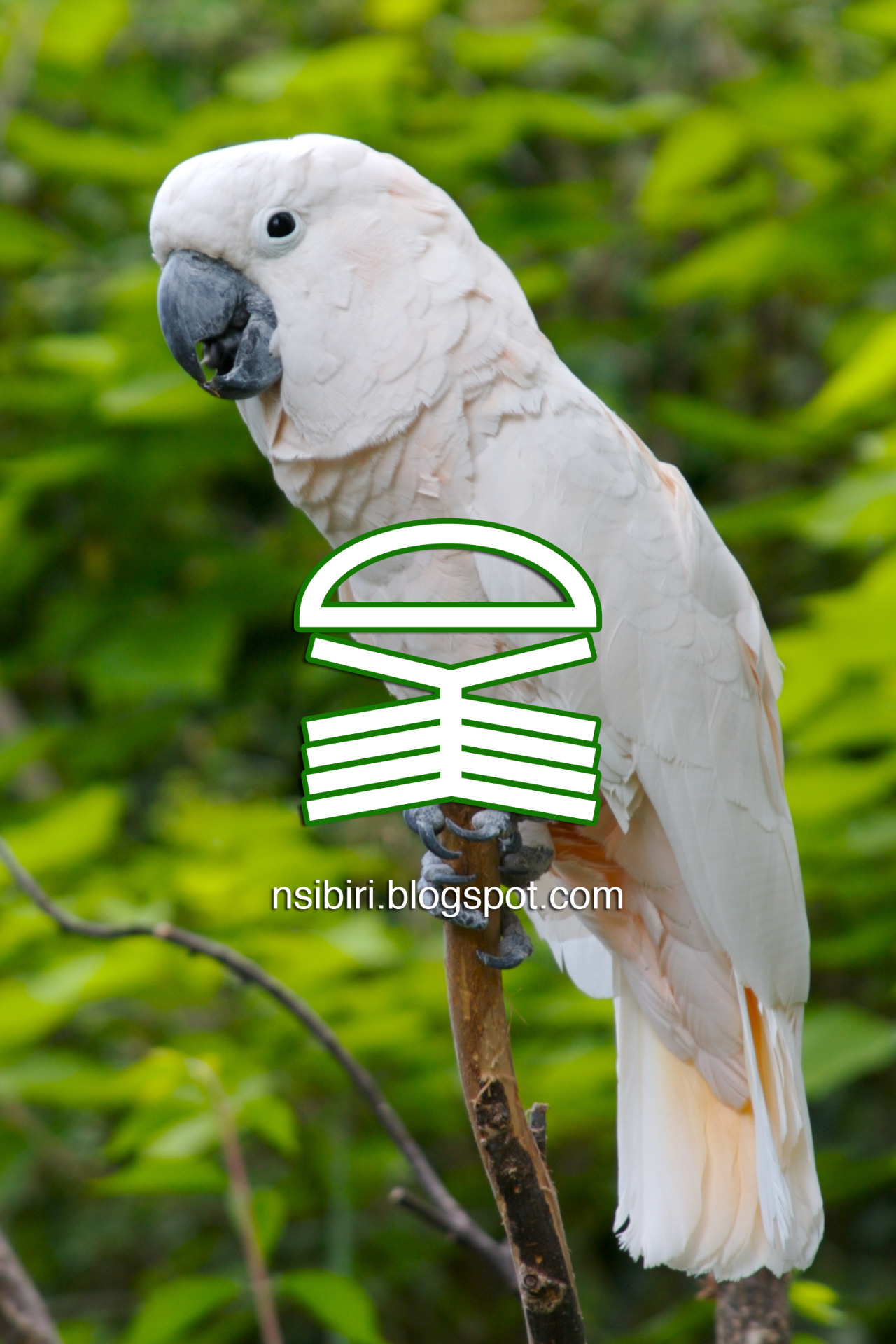 Ship  |
| Re: Nsibiri: The Pre-colonial Writing Of The South Eastern People by Nobody: 11:30am On Jul 25, 2014 |
This is such a wonderful thread, I hope it continues. |
| Re: Nsibiri: The Pre-colonial Writing Of The South Eastern People by Yeske2(m): 12:44pm On Jul 25, 2014 |
I just love this |
| Re: Nsibiri: The Pre-colonial Writing Of The South Eastern People by internetpo(m): 1:16am On Jul 26, 2014 |
love this. would like to learn the writing too |
| Re: Nsibiri: The Pre-colonial Writing Of The South Eastern People by Feraz(m): 2:13pm On Jul 26, 2014 |
Wonderful research from the original author of the whole thing. Any new information on it? It would be cool to see this happen  |
| Re: Nsibiri: The Pre-colonial Writing Of The South Eastern People by obong(m): 5:57am On Dec 07, 2014 |
This stuff is not igbo but a cross river state heritage. The ejagham people. South eastern is broad and I don't want things confused and the proper parties not given credit. |
| Re: Nsibiri: The Pre-colonial Writing Of The South Eastern People by chibecanglobal(m): 1:38pm On Dec 07, 2014 |
obong: |
| Re: Nsibiri: The Pre-colonial Writing Of The South Eastern People by chibecanglobal(m): 1:40pm On Dec 07, 2014 |
obong:Cross river and igbo heritage if you are conversant with its history bro. It is a known fact that it originated from the peoples of cross river but you should agree that in the course of its development its use spread to other peoples neighbouring the originsl cross river users which included parts of present igbo land.You should know that it is based on ideas and concepts represented in ideagraphs which transends languages. |
| Re: Nsibiri: The Pre-colonial Writing Of The South Eastern People by chibecanglobal(m): 1:48pm On Dec 07, 2014 |
obong:Cross river and igbo heritage if you are conversant with its history bro. It is a known fact that it originated from the peoples of cross river but you should agree that in the course of its development its use spread to other peoples neighbouring the original cross river users which included parts of present igbo land.You should know that it is based on ideas and concepts represented in ideagraphs which transends languages.. 1 Like |
Exclamation In Various Ngerian Tribes/dialect / Abdulrosheed Akanbi Suspended For 6 Months / Police Station Built By David Okunato In Ondo State (photos)
(Go Up)
| Sections: politics (1) business autos (1) jobs (1) career education (1) romance computers phones travel sports fashion health religion celebs tv-movies music-radio literature webmasters programming techmarket Links: (1) (2) (3) (4) (5) (6) (7) (8) (9) (10) Nairaland - Copyright © 2005 - 2024 Oluwaseun Osewa. All rights reserved. See How To Advertise. 103 |


